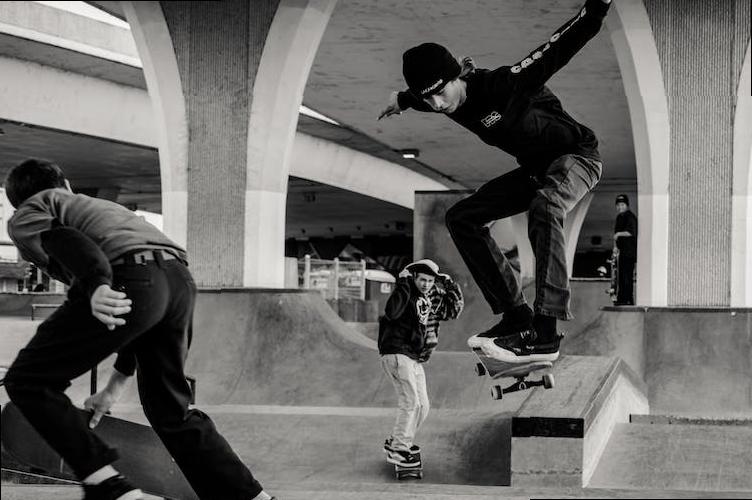
Maximizing Your Winnings: Free Bets In Top Uk Horse Racing Betting Sites
Free bets are one of the most popular promotions offered by top UK horse racing…

In recent years, college sports have dominated the conversation when it comes to sports betting. With the rapidly growing American sports betting industry, the National Collegiate Athletic Association (NCAA) has become increasingly concerned about the impact of gambling on student-athletes. In response, some universities, including Rutgers, have implemented betting restrictions. The aim is to protect the integrity of college sports and ensure that the mental and emotional health of student-athletes is not compromised by the pressures of gambling.
While the aim of such restrictions is well-intentioned, many have questioned their efficacy. Critics argue that such restrictions are little more than a form of paternalism, denying students their right to engage in what is now a legally sanctioned activity, while also ignoring the very real challenges that many student-athletes face.
In the case of Rutgers, the restrictions have been in place since 2019, and they include a ban on betting on all sports – including college sports – for all students, staff, and faculty affiliated with the university. To ensure compliance, the university has partnered with a third-party service that monitors social media channels and other online platforms for any mention of prohibited activities.
While the jury is still out on the effectiveness of such measures, there is no denying that the issue of sports betting and student-athletes is a complex one, fraught with competing interests and priorities. As such, it is a conversation that will likely continue for some time to come.
Rutgers’ betting restrictions have negative effects on student-athletes. These restrictions limit the student-athletes’ freedom to engage in sports betting, which if done in moderation, can be a source of entertainment and income. The restrictions limit the potential for making additional income through sports betting using legal means.
Moreover, the restrictions can lead to increased illegal and unmonitored sports betting among student-athletes. As a result, this can negatively affect the integrity of the sports events and can also compromise the safety and well-being of student-athletes.
To ensure convenience for players, new UK casinos no gamstop offer multiple payment methods to choose from. However, the betting restrictions at Rutgers limit the ability of student-athletes to take advantage of these convenient and legal means of earning money through sports betting.
Overall, the negative effects of Rutgers’ betting restrictions on student-athletes serve to limit opportunities for financial gain and can also lead to more risky and illegal behavior. While it is important to maintain the integrity of collegiate sports, there may be alternative approaches to regulating sports betting that do not limit student-athlete freedom and opportunity.
The implementation of betting restrictions at Rutgers University has led to decreased revenue generation opportunities for the athletics department. This decision was made in order to preserve the integrity of collegiate sports and prevent any potential corruption or misconduct associated with sports betting. However, it has had a negative impact on the financial well-being of the institution.
Due to the restrictions, Rutgers is unable to enter into partnerships with sports betting companies which would have brought in significant revenue. This includes sponsorships, naming rights for athletic facilities and even in-stadium advertisements during sporting events. Additionally, the number of fans attending games has decreased because they are unable to engage in sports betting activities while at the games. This has resulted in a decline in ticket sales, merchandise sales, and concession revenue for the department, all of which contribute to the overall revenue of the university.
Overall, the betting restrictions have had a substantial impact on the revenue streams for the athletics department at Rutgers University. While the aim of the restrictions is to maintain the integrity of the institution and the sports programs, the financial consequences cannot be ignored.
Limited exposure to sports betting was the main concern behind the Rutgers Betting Restrictions. In 2019, Rutgers University in New Jersey announced a new policy regarding sports betting that prohibited staff and student-athletes from engaging in sports betting on any college or professional athletic events, either on or off-campus.
The policy was implemented in response to the state’s newly legalized sports betting, which many believed would present a major challenge to college athletics. The policy is intended to protect the integrity of college athletics by limiting the influence that sports betting might have on its participants.
According to the Rutgers University President, Jonathan Holloway, while the new law legalizes sports betting in New Jersey, it also poses significant risks and concerns that need to be addressed by the institution. Rutgers adopted the policy with a great emphasis on the concerns of the staff, student-athletes, and university as a whole towards problem gambling.
The policy applies to all individuals who are affiliated with Rutgers in any way, including student-athletes, coaches, athletics staff, and university employees. It is enforced by the university’s compliance staff and applies both on and off-campus. The new policy has allowed Rutgers to limit exposure to sports betting and help maintain the integrity of college athletics in the state of New Jersey.
After Rutgers University implemented betting restrictions in 2019, there has been a noticeable decrease in engagement with fans. This is due to the fact that the restrictions have limited the amount of interaction between fans and the team, both in-person and online. Fans are no longer able to place bets on the university’s athletic events, which has decreased their interest and motivation to attend games, watch on TV, or follow the team on social media.
Additionally, the betting restrictions have created a feeling of mistrust and tension between the university and its fans. Many fans feel like they have been unfairly penalized for the actions of a few individuals who were involved in illegal sports betting. This has resulted in a decreased sense of community and loyalty towards the university, as well as a general disinterest in supporting the athletics program.
Overall, the Rutgers betting restrictions have had a negative impact on fan engagement with the university’s athletic program. The restrictions have limited the amount of interaction between fans and the team, which has resulted in a decrease in interest and motivation to support the program. Additionally, the restrictions have created a sense of mistrust and tension between the university and its fans, which has further decreased engagement with the program.
Limited sponsorships and endorsements were implemented by Rutgers University in response to their betting restrictions. This policy means that only approved sponsors can provide financial support, which must be reviewed and approved by the university before acceptance. This regulation ensures that the university only accepts sponsorships and endorsements that align with their values and mission.
The Rutgers betting restrictions are in place to discourage gambling among their student-athletes and staff, as well as to prevent conflicts of interest. The policy prohibits members of the athletic department from betting on professional and collegiate sporting events, and from providing information to anyone with the intent to gamble.
In addition, the university prohibits the use of their name, trademarks, and logos in connection with any form of gambling or betting. This policy includes both on-campus and off-campus activities. Rutgers University is committed to promoting healthy and ethical behavior, and this policy aligns with that goal.
In conclusion, the limited sponsorships and endorsements policy at Rutgers University reflects their commitment to promoting responsible behavior and preventing conflicts of interest. Get an exclusive non gamstop casino no deposit bonus available only for non gamstop players.

The Rutgers Betting Restrictions have resulted in reduced interest in sports careers. Gambling companies cannot interact with the university’s athletic department, and athletes, coaches, and staff cannot place bets on sports games. As a result, student-athletes may feel less incentivized to pursue a career in sports due to the reduced financial benefits that may come with gambling sponsorships. Additionally, the restrictions may lead to less media coverage and less betting-related job opportunities, which can reduce the overall attractiveness of sports careers.
Explore the exciting world of non gamstop live dealer casinos PayPal, which offer endless options for online gaming.
The Rutgers Betting Restrictions have led to a decrease in social experiences for students at the university. The restrictions were put in place to prevent student-athletes and university personnel from participating in gambling activities and to prevent any association with illegal or unethical behavior. However, without access to betting and other gambling activities, students have one less avenue for social interaction.
Before the restrictions, students could gather at bars, engage in online betting or even participate in friendly wagers among friends. These activities brought students together and provided a sense of community on campus. Now, with the restrictions in place, students are less likely to engage in these activities, leading to a decline in social experiences.

The betting restrictions have also impacted organized social events at the university. Events such as March Madness parties or football game watch parties were previously popular among students, but with the restrictions in place, these events have decreased in number and attendance. This has resulted in fewer opportunities for students to come together and socialize outside of the classroom.
In summary, the Rutgers Betting Restrictions have resulted in a decreased number of social experiences for students on campus. The restrictions have limited the opportunities for social interaction among students, resulting in a decline in community and social connectedness at the university.
Rutgers University has enforced betting restrictions on sports games played by their athletes. Despite the restrictions, the likelihood of illegal betting has increased due to the ease of online betting platforms. Gambling addiction can be intensified by easy access to casinos without restrictions, and the same is true for online betting. Due to the restrictions, some may feel inclined to turn to illegal means to place their bets. This could lead to further consequences for both the individuals and the university, including legal action and damage to the reputation of the school. Additionally, the lack of regulations on illegal betting websites may make it difficult to ensure that the bets are fair and that winning payouts are accurate. The increased likelihood of illegal betting highlights the need for continued oversight and regulation of online betting platforms, as well as increased efforts to educate individuals about the risks associated with gambling addiction. Rutgers University’s betting restrictions may be a step in the right direction, but continued efforts will be needed to ensure compliance and prevent the negative consequences of illegal betting.
The implementation of betting restrictions at Rutgers University caused a decrease in morale and motivation among the school’s sports teams. The restrictions, which banned athletes and coaches from betting on any collegiate sports, were put in place to comply with NCAA regulations and prevent the possibility of game-fixing.
However, many athletes felt that the restrictions were unfair and intrusive. They argued that they should be allowed to engage in harmless betting activities as long as they did not bet on Rutgers games or engage in any illegal activities. The restrictions also made it difficult for athletes to participate in fantasy sports leagues or other gambling activities that were popular among their peers.
As a result of these restrictions, many athletes felt demotivated and disengaged from their sport. They felt that their personal freedom had been infringed upon and were frustrated that they were being punished for something they saw as harmless. Coaches also had to deal with the fallout from the restrictions, as they had to navigate the morale and motivation of their teams during a challenging time.
Overall, the betting restrictions at Rutgers University had a negative impact on the morale and motivation of the school’s athletes and coaches. They demonstrated the delicate balance between compliance with NCAA regulations and the personal freedoms of collegiate athletes.
The Rutgers Betting Restrictions have led to an increased pressure from coaches to ensure compliance with the ban on sports gambling by student-athletes, staff and coaches. Any violation of this ban could result in penalties that range from suspension to dismissal or even criminal prosecution.
Coaches, aware of the consequences of violating the ban, have stepped up their efforts to educate their players and staff members about the risks involved in sports gambling. This increased pressure from coaches is necessary to prevent any potential damage to the integrity of college sports that could result from betting on games.
Coaches have also taken proactive measures to monitor the behavior of their players and staff, including conducting regular educational seminars, reminding students and staff of the ban during team meetings, and working closely with university officials to enhance the monitoring of gambling activities on campus.
The increased pressure from coaches on this issue has ensured the Rutgers community is collectively compliant with the ban on sports gambling by student-athletes and staff, thereby preserving the integrity of college sports.

In conclusion, Rutgers University’s decision to restrict betting on their sports teams is a clear indication of their commitment to promoting integrity and fairness in college athletics. By implementing this policy, the university is taking a proactive approach to ensure that their student-athletes remain focused on their academic and athletic pursuits without the undue influence of gambling.
While some may argue that this restriction is an infringement on personal freedom, it is important to remember that the NCAA has banned sports betting on their games for many years. Rutgers is simply following suit and reinforcing this rule on a local level. Additionally, research has shown that betting can have negative impacts on mental health and can even lead to addiction.
Overall, Rutgers’ betting restrictions send a strong message that the university values the well-being of its students and prioritizes their success both on and off the field. It is a commendable move that should be lauded by other universities and organizations throughout the sports industry.

In summary, Rutgers’ decision to implement betting restrictions for their sports teams is a positive step towards promoting integrity and fairness in college athletics. It demonstrates their commitment to ensuring the well-being and success of their student-athletes and sets an important precedent for other institutions to follow. While controversial, this policy is ultimately in the best interest of everyone involved and is a clear indication of Rutgers’ dedication to upholding the values of college sports.